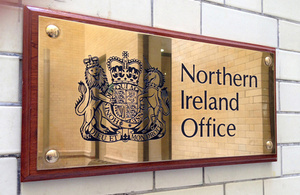Thank you very much, Mr President, and let me thank SRSG Hennis-Plaeschert and her team in UNAMI for their continued hard work in difficult circumstances.
Today, I’d like to focus my remarks on the elections, the economy, humanitarian and security issues.
So let me start with the crucial question before us all of elections. Like Linda and others today, I want to underline that this is a pivotal year for Iraq. The elections in October could be a defining moment and a step towards increased stability. It is essential that those elections are seen by the Iraqi people as delivering a representative result. To that end, I welcome the Government of Iraq’s determination to hold free, fair and credible elections. The UK is fully committed to Iraq’s democratic process, and we look forward to discussions on how the UN can significantly enhance its support to the elections alongside the ongoing package of technical assistance.
While on the elections, let me also welcome the establishment of a higher committee to promote and monitor women’s electoral participation and propose measures to prevent and address violence against women candidates.
Let me turn to the economics, Mr President. While it is welcome that Iraq’s Parliament has approved the 2021 budget, we note, however, that many of the more ambitious measures aimed at economic reform were removed. This risks continued Iraqi vulnerability to oil price fluctuations, which in turn undermines the country’s achievement of sustainable and inclusive development and ability to mitigate poverty. We would therefore urge the government to continue to pursue these much-needed economic reforms.
In that context, let me welcome the Special Representative’s continued engagement and support to the Government of Iraq’s anti-corruption efforts. As the Iraqi government has itself acknowledged, tackling corruption is vital to Iraq’s economic development and to building stability in the country. It’s important that these efforts adhere to criminal procedures with due process, fairness and transparency reflective of Iraq as a democratic system.
Mr President, we remain concerned by the humanitarian situation for the country’s 1.2 million internally displaced people and the closure of camps for IDPs. Since 2014, the UK has committed over $380 million dollars in humanitarian support for Iraq, providing a vital lifeline to millions with shelter, medical care and clean water. We welcome the recent presentation by the Government of Iraq of its national plan for returning IDPs. And we urge the government to prioritise finding sustainable and durable solutions for Iraq’s IDP population and to coordinate closely with the United Nations to ensure that all returns are safe, dignified and voluntary.
Let me also say that we were pleased to see the first delivery of COVAX vaccines to Iraq on 25 March as part of Iraq’s own plan to vaccinate its vulnerable people. The UK has given $750 million to COVAX, and we’re proud that the G7 countries overall have pledged over $7 billion.
Mr President, on the security side, I want to condemn the recent attacks in the Iraqi Kurdistan region and support the government’s investigation to ensure that those responsible are held accountable. Continuing Daesh attacks across the country undermine Iraq’s stability and also demonstrate the importance of the ongoing work of the Global Coalition to defeat Daesh, in close partnership, of course, with the Iraqi security forces.
And the government of Iraq is striving to strengthen its relations with regional neighbours. We continue to support that and to reiterate the importance of dialogue and cooperation between Iraq and Turkey to combat terrorism, ensure regional security and protect civilians. Let me, in that context of relations with the region, commend the shared commitment of the Iraqi and Kuwaiti governments to make progress on the file of missing Kuwaiti persons and property pursuant to SCR 2107, as demonstrated through the recent transfer of Kuwaiti property by Iraq. The identification of the remains of an additional eight Kuwaiti missing persons was a really positive step.
Mr President, let me conclude by saying that the United Kingdom will continue to stand with the Government and people of Iraq over these coming vital months as they work to advance the country’s stability with well-run elections, the implementation of crucial economic reform and the effective combatting of terrorism.
Thank you, Mr President.
